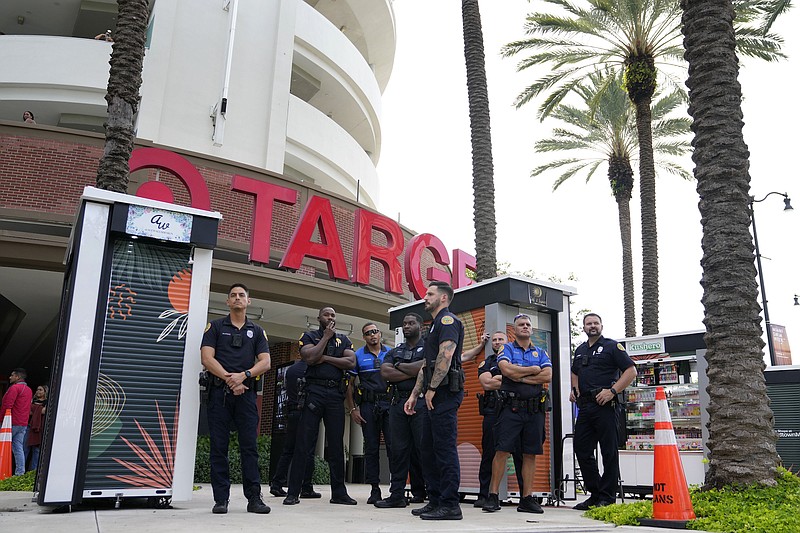It's hard to keep track of who to be mad at.
Case in point, the recent right-wing outrage against Chick-fil-A.
For years, we have been told to skip the Atlanta-based chain because its former president Dan Cathy, son of the founder, was against gay marriage. I was disappointed to hear that. But I've also been unable to tear myself away from those spicy chicken sandwiches. Besides, I had learned that Cathy once slept overnight in a homeless shelter to determine if he should fund it.
The dude walks the walk, no matter how we disagree on the subject.
The boycott was adamant and long-term but the chain still thrived and grew.
But now some on the right, or may I say the easily offended far right, are angrily chirping that the religious, family-oriented chain has gone woke! The company's crime? It has a DEI (Diversity, Equity, Inclusion) executive, something that is de rigueur in many firms as they try to hire and promote leaders who don't look like the ones who've run things for generations.
One congressman hissed that it was "abhorrent" while other conservative activists manned the their keyboards.
There was talk of a boycott although I don't see one, based on the lines of cars queuing at the nearby Chick-fil-A.
But the landscape has shifted. For decades, boycotts were the purview of the left. No longer.
Corporations gingerly tip-toed in fear of the Lefty Twitter Mob. But now execs must cast a wary eye on the Aggrieved Right.
Five years ago, the Heritage Foundation, a think tank where many conservatives go to find out what they should think, published an editorial: " In America's boycott wars, conservatives have no choice but to start fighting back."
The author reasoned that since lefties were successfully wielding boycotts, why not us?
Bud Light, of course, in the crosshairs, as is Target, Kohl's and even LEGO. The latter was targeted by folks looking to get mad at something after an online "influencer" claimed the toy maker was featuring "transgender building sets." LEGO says it hasn't, but the truth should never get in the way of indignation.
The company taking it on the chin the worst is Anheuser-Busch because a marketing exec had a trans influencer wave around a can of the product. Billions of dollars of lost stock value later, company execs are wondering what hit them.
Target is also accused of pandering to gay America and is seeing a backlash after some knuckle draggers toppled some Pride Month displays in stores.
The retailer started supporting LGBTQ causes and for many years since has had a #TakePride campaign.
Well, now it's coming full circle by shoppers offended by the thought of witnessing someone buying a pair of rainbow capris.
Cutting a safe path through this bitterly divided landscape can keep a well-paid exec up at night.
Take the NFL. A few years back, quarterback Colin Kaepernick started kneeling at the national anthem as a silent protest against police brutality.
Many on the right got their jock straps in a bunch for that and said they would no longer watch. And there are those on the left, especially African Americans, who turned off their TVs after Kaepernick got blacklisted for his stand.
Georgia companies have been targeted through the years — Delta Air Lines, Home Depot and Coca-Cola, to name a few.
Brayden King, a business professor at Northwestern University, has tried to quantify the success of boycotting.
His studies found that a quarter of 177 companies targeted between 1990 and 2005 offered concessions to protesters. He was quoted saying they often do so not because of lost sales, but the negative media attention.
I asked if social media has caused more intense or successful campaigns. He said there seem to be more boycotts because anyone with a Twitter account can start one.
But, he added, other than Bud Light, most boycotts "have a very short duration because they're competing with other boycotts and events for public attention." Social media, he added, "has accelerated the pace of news turnover."
Like I said, I can't even remember who I was mad at yesterday.
The Atlanta Journal-Constitution
